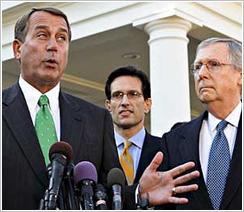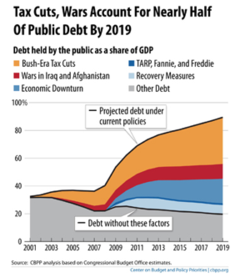Think of this as Volume 15, Number 45 of A-Clue.com, the online newsletter I've written since 1997. Enjoy.

(Shown here is V&V Sausage, made by distant relatives of my wife in Cistern, north of Flatonia TX along State Highway 95. Yummy!)
You can make sausage out of anything. I've had vegetarian sausage. You can buy non-animal casing (it's cheaper) and make a day of it.
Nearly every culture enjoys what Anthony Bourdain calls “meat in tube form” because it's such an efficient use of food resources. (Bourdain's favorite is blood sausage – mostly blood with grains and some nasty bits. Done right it's heaven.)

While most people love sausage, most claim to hate sausage-making. While everyone claims to love democracy, they also claim to hate the process.
This is what is wrong with America. The process IS democracy.
In the last two years we've had three major episodes of democratic sausage-making in the news, episodes our media has succeeded in making seem so distasteful we've soured on the sausage thus made without even trying it.
These were, in order, the health care debate, the deficit battle and (now) the European effort to get its fiscal house in order.

Butchers are claiming to be scared of blood. Know when they do that? It's when they don't want you looking too closely at their factory.
The result of the first episode was a Republican House, which spurred on the second episode and has soured investors on the third. Soured them so bad that bond rating agencies have actually cut America's credit rating, and many ratings in Europe.
Time someone called them on it.
The only difference between what's happening in Europe right now, what happened in Congress earlier, and a common business deal is that some of it has taken place out in the open, and the stakes have been made deliberately high so we'd look at the process and not the outcome.

Of course.
So why is our corporate media acting like democratic negotiation is something icky? The key term in the last sentence is corporate. Corporate leaders know how messy negotiations are, because they engage in them every day and they're hugely profitable. Democratic negotiations can be the same, and often are, save for the squeamishness we're told to feel over them.
Fact. The health care law passed by Congress last year is a pretty good law. Everyone into the pool, a process that might allow the government to do more of the work if the private sector refuses (as it's currently refusing), and reforms in the market that will (in time) put a thumb down on costs. Just as European countries have a thumb on costs. Just as Latin American countries do, and Asian countries.
Only in America are we told that you can have an unlimited draw from a limited resource. This is the Big Lie of last year's debate, that you can in fact have it all. The lie worked because health is complicated, because what's possible (and what's seen as impossible) is constantly changing, and because you can always find a doctor to take the “do it” position on anything, especially if there's money for him (or her) in it. Doctors are human.
Given the truth you can ration care in two ways. You can try to stretch the dollars, or you can cut people off. You can ration based on science and democracy, in other words, or ration based on economics and voodoo. In the end Americans chose science. Not perfect – even science is imperfect, social science and economics least perfect of all. Not perfect, but the alternative is to become just like Mexico, or other developing countries, where health is a luxury good, and where every political battle quickly becomes life-or-death.

Every nation is a business, one that cannot by definition fail. You can have failed states, but even Somalia exists, as Hobbesian as it is. Nations rise and fall all the time, and those which are rising are investing in their infrastructure, not hoarding what wealth they have and hoping that they can impoverish their way to safety.
The beauty of Occupy Wall Street is not what the protesters are saying, but what they don't have to say. We're here. You're not going to take the nation's wealth and find a place to hide. We'll pull you out of your hidey-hole if you try. You have to deal with us.
This has changed the conversation. We're talking again about how we might grow. We're once again seeking abundance. That's because – and here's a point that reporters are taught never to understand — direct action is also part of the democratic process. It's how outsiders get into the room. It's one way buyers get to decide what goes into their sausage.
The third negotiation was due to “climax” on Wednesday, but 5 will get you 10 whatever came out of this latest effort will be called a stop-gap by Thursday. What's happening in Europe is a classic business negotiation, between debtors and creditors. It's a work-out, and Greece has gone from being “the honored customer” to the “son of a bitch that won't pay.” They're being turned upside-down in the search for funds, but at the end of the day the creditors will have to take what they can get in the bankruptcy, and move on to other business. (Or Greece will take the route of Argentina, which is not a bad route as it turns out.)

But it's not something to condemn. It's something to celebrate. Because the alternative is despotism.
Instead of condemning the process of democracy, the media should be celebrating it. And you should, too.
Bring beer.











I am thankful for exerting your time and effort to post this very informative post. keep up the good work!
I am thankful for exerting your time and effort to post this very informative post. keep up the good work!